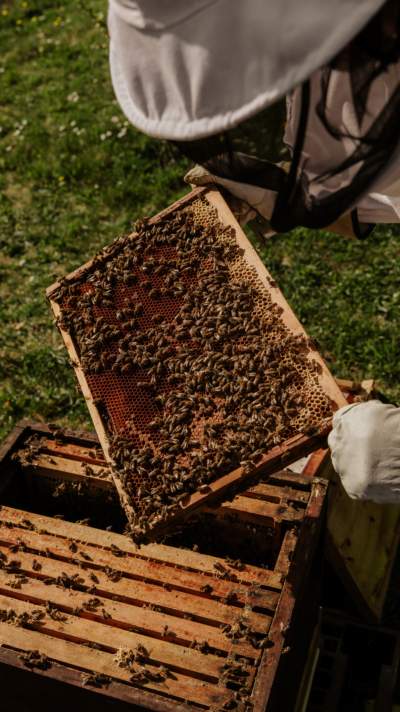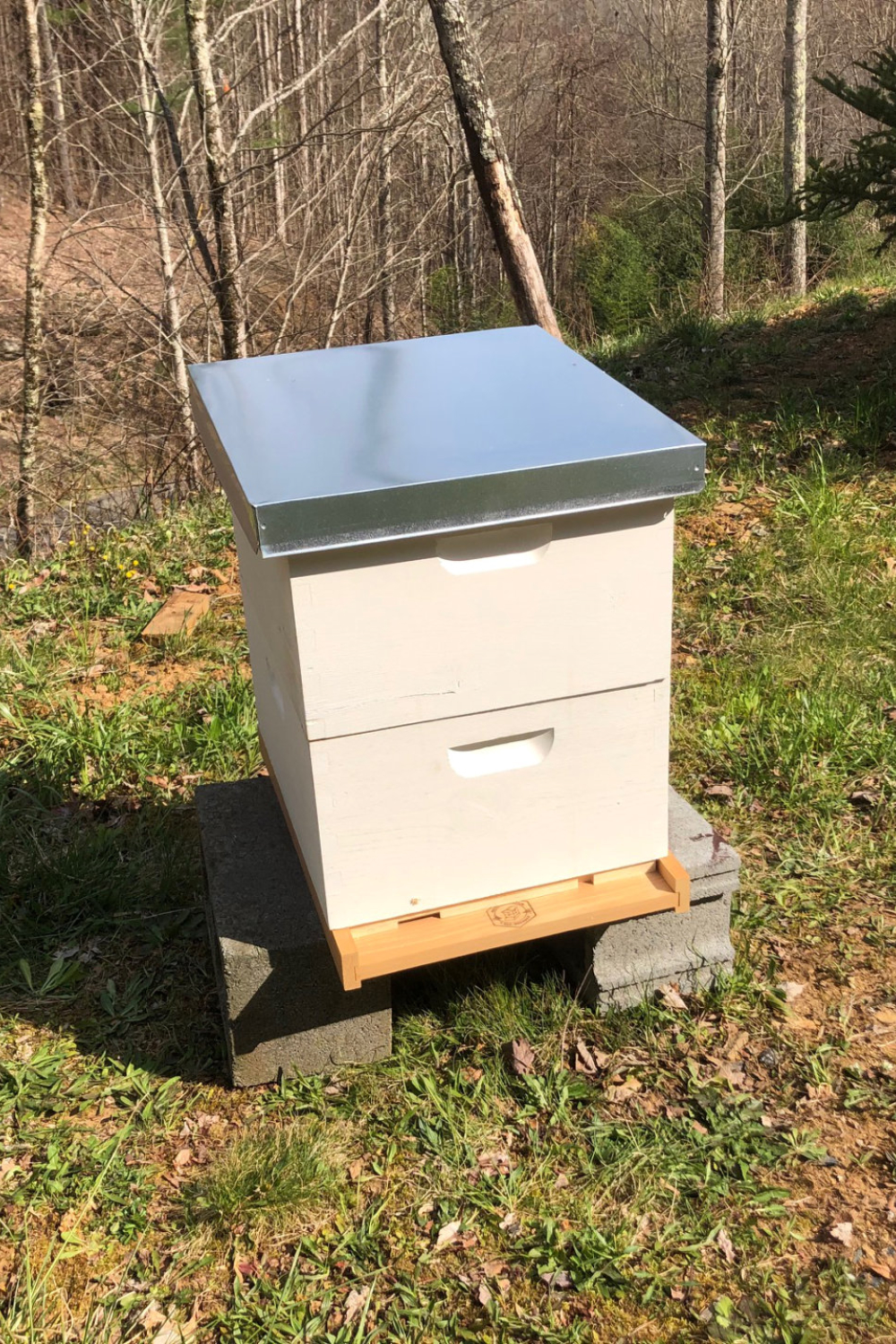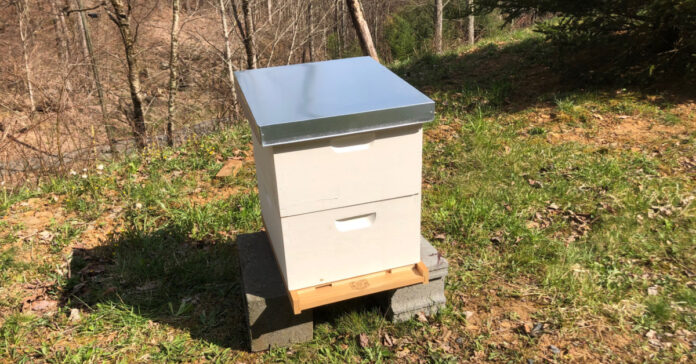I’ve decided to take up the hobby of beekeeping again because it fits well with our current lifestyle: We have moved to a home in a rural location, we have plenty of land, and I have the time to give them the attention they deserve. Because I raised bees before, I have some experience, enough knowledge to be dangerous, and a good bit of equipment, reducing my startup costs.
My objective is to raise bees for their honey, which I expect will provide us with a resource during tough times. That resource may be as simple as added calories that can be easily preserved (honey stores forever), or it may be as a means of barter. It could be an important natural sweetener down the road since we won’t be making maple syrup or raising sugar cane around here.
A Beekeeper’s Objectives
I can think of a number of reasons you might want to keep honey bees:
- Bee populations are in trouble and you felt it was environmentally responsible to raise bees.
- You think they are fascinating creatures and like to observe them and their behaviors, or you think it would be a neat hobby.
- You have a homestead and see them as a valuable addition to your garden, chickens and other small livestock. (This is pretty much where I fall right now.)
- You raise crops and want bees to help you ensure good pollination and a better harvest.
- You want to raise bees as a side gig and harvest some honey to sell and maybe to give as presents. (I think it would be nice to get to this point, but I am not in a big rush.)
- You see this as a career choice that allows you to work outside, be independent, or maybe even travel the country as a migratory beekeeper. (Be warned, commercial beekeeping is not as easy as it sounds.)
- Any combination of the above.
Bees as Livestock
I look at bees as livestock. While I am happy to contribute to the preservation of bees, it serves my objective to raise healthy, large hives capable of producing good amounts of honey and successfully overwintering. I expect to build my hives over time to whatever number my area can support based on the pollen and nectar flow. My plan is to accomplish this by putting out swarm traps to capture wild bees, splitting my largest hives, and raising my own queens. I am sure there is some magic number where of beehives where beekeeping moves from being a hobby to being a job, and I don’t want that. However, if I’m enjoying myself, it probably won’t feel like work, so I plan to play it by ear as to how many hives are my maximum.
Care and Feeding of Livestock
I believe that by choosing to raise livestock, whether it is a cow or a bee, you have an obligation towards that creature. You owe it your best effort to keep it healthy, comfortable, and alive until you harvest it. Just as I would need to have adequate pasture and shelter if I raised goats or cows, I need adequate forage for bees. And just as I vaccinate my chickens, I need to treat my hives to minimize mites and viruses. We are planting flowers, clover, and encouraging the growth of blackberries and other fruits to help provide feed sources for the bees.

Livestock needs adequate fencing, and so do bees, at least in an area like ours where there might be bears, which can be deterred by strong electric fencing. Animals like raccoons, and skunks can also prey on bee hives. Good fencing will keep them out, too.
In return for giving them shelter, protection and food, I am entitled to harvest the eggs from my chickens and the honey from my bees. I would not kill a deer and just take the back strap or butcher a pig and just harvest the bacon, so neither will I let the eggs from my chickens or the honey from my bees go to waste. Ideally, my family and friends will benefit from the honey, but I am not averse to using it as gifts to generate some good will, selling it, or bartering with it.
I consider this an ethical approach to beekeeping and small stock management. Before you commit to raising bees, make sure you can make the investment of time, energy and funds to support them.
Set Your Budget
If you want to become a beekeeper, ask yourself what your beekeeping objectives are and how much you are willing to spend to make them come true. When you include the protective gear, equipment, hive components, feed and bees, you will probably spend $500 getting your first beehive. It gets cheaper from there, but not much unless you raise your own queens and build (or at least assemble) your own hives and frames. That’s one reason commercial beekeepers have to be so large; they need the scale.
If you have become a bee keeper for fun or for personal reasons, then how you manage your hive(s) will probably differ than if you became a beekeeper because you want to make a few bucks on the side. The key is to set your expectations early.
Start Slow
Whatever your plans, I recommend you walk before you can run. Even if you have a grand vision, I recommend you start off with a few hives, not a few dozen. Learn to manage your hives, raise your own queens, split your own hives, and build your bee yard on a small scale before you go larger. Get to know the local environment, what blooms when, when the nectar flows the best, and when you can harvest without harming the hive’s health, and how to treat and manage the varroa mite.
Hives die. Hives swarm if you aren’t monitoring them. Bees are lost. Sometimes mistakes are made; other times it’s just nature. Just like a weasel can get into your chicken coop and kill all your hens, you could lose all your bees. Learn on a small scale because it’s better to lose a few hives while you learn rather than a few dozen.
If your secret inner desire is to have hundreds or thousands of hives, find a commercial beekeeper and go to work for them. Learn everything you can on the job and make sure you have the temperament, the patience, the skills, and the pocket book to build your own commercial enterprise.
Finally, keep in mind that you can have a homestead garden without selling at a farmer’s market. You can raise eggs without selling them to local restaurants. There’s nothing wrong with having a few hives for your own personal pleasure and use.
Beekeeping Videos
Here’s a YouTube video about a guy who lost all but one of his hives over the winter. I’m not going to pretend to know why or what (if anything) he did wrong, but consider it a cautionary tale. Be aware that this worst-case scenario is possible and do everything you can to prevent it from happening.
Lest you get too worried, here’s a short video about hives that overwintered successfully. I would add that this is from one of my favorite YouTube beekeeping channels and you can probably learn quite a bit from watching some of Kamon’s extensive YouTube catalog.









